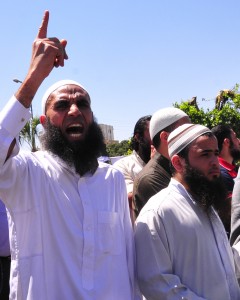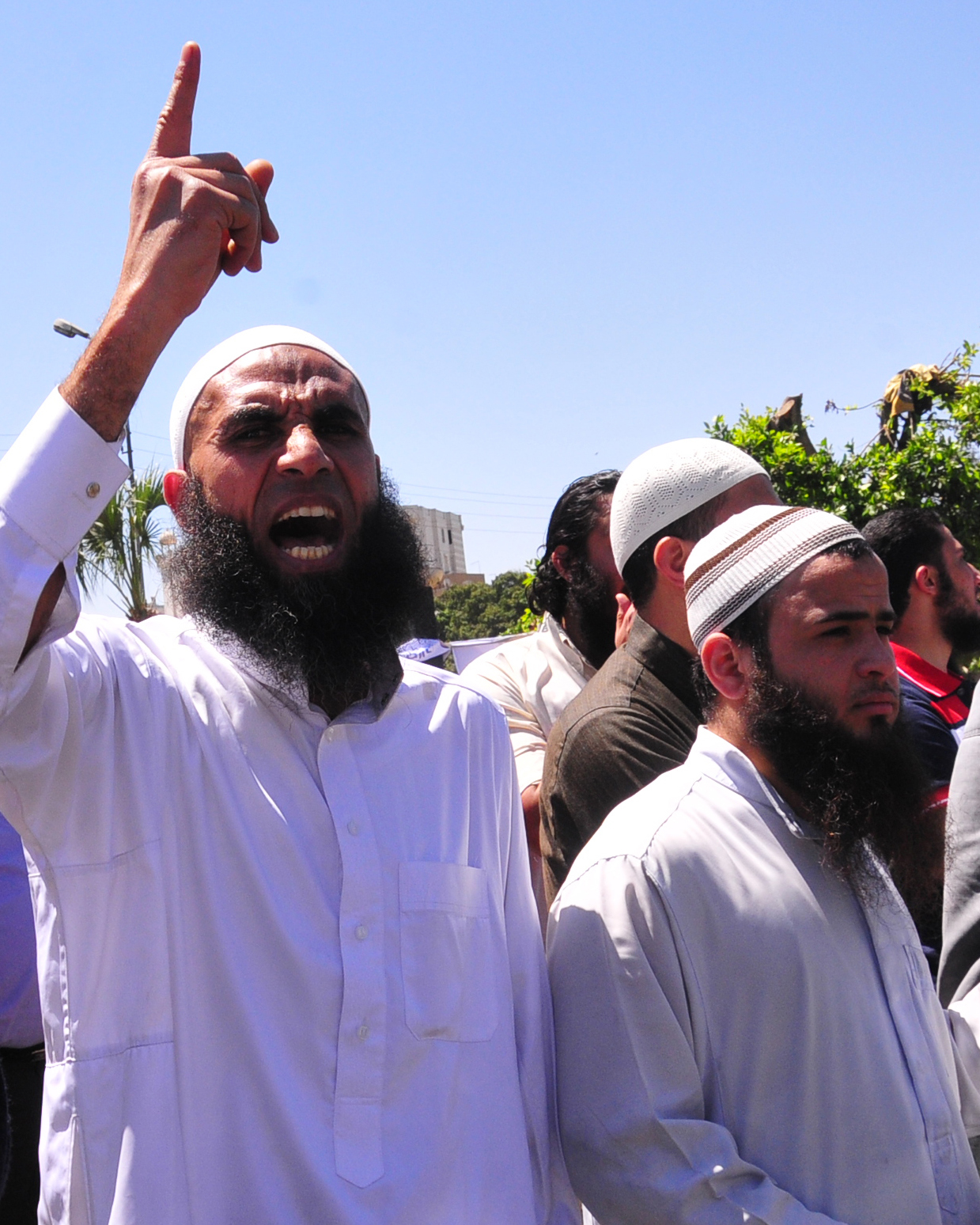
(Photo by Hassan Ibrahim)
Any threat to police facilities “will be met with force and if necessary with live rounds”, Ministry of Interior spokesman Hany Abdel Latif said in an interview on privately-owned Tahrir Channel.
Abdel Latif’s comments, made on Sunday night, came in response to the anticipated 28 November protests.
The spokesman added that there is a special plan, involving heavily armed special forces, to counter all possible “violent protests”. Abdel Latif said that this is “all in accordance with article 36 of the Criminal Law”, which describes the way security forces should deal with and define “terrorism”.
Minister of Interior Mohamed Ibrahim said in a Sunday meeting with the Higher Police Council that police forces are planning to secure state facilities. This comes in the wake of calls by “terrorist groups to stage protests that aim to spread chaos and unrest”.
Ibrahim stressed that security forces should “launch pre-emptive strikes to abort those plots”.
The Salafi Front, an Islamist political organisation, recently announced its intention to spearhead a new wave of protests under the name “The Muslim Youth Uprising” on 28 November. The group said that the protests come in response to “secular attempts to weaken the Islamic identity and Sharia”.
A member of the front’s political office, Ahmed Mawlana, went missing last week, with the front accusing security forces of “kidnapping him”. The interior ministry has yet to confirm whether Mawlana was arrested.
Advisor to the Grand Mufti, Ibrahim Negm, denounced Monday the Salafi Front’s calls for an uprising, describing them as “a suspicious mixing between religion and political purposes”.
Negm added that the calls reveal ignorance, and will only produce more hatred, warning against groups who “take Islam to cover up their political objectives”.
Minister of Religious Endowment Mohamed Mokhtar said in a press conference Saturday that “those who call to carry weapons against the army and police should be dismembered”.
Mokhtar said that “other calls to raise the Islamic flag and the Quran are carried out by the Salafi Front are suspicious”, describing the group as “Kharijites”.
The term ‘Kharijite’ is used by Islamic scholars to describe groups who go against religious leaders or traditional religious institutions. The term originated in the 8th century in Arabia, when it was used to refer to Muslims who rejected the leadership of the Islamic Caliphate of Ali ibn Abi Talib.
“The Islamic front is a part of the now outlawed Muslim Brotherhood group, which is aiming to create division among Egyptians”, Mokhtar said.
The ultra-conservative Salafi Front, which supported ousted Islamist president Mohamed Morsi, said the uprising it is calling for will “reveal the conspiracies of secularism”. The group also said the uprising aims to defend Islamic identity and to promote justice.
In a new video currently circulating on social media, the front said: “An uprising is a must when Islam is being fought in schools and media, and when Muslims are being banned from practicing their religion.”
The video added that the “uprising is not affiliated with a party or an alliance… and is not about excommunication or sectarianism”.
The calls have sparked divisions among Salafi groups, including the Salafi Da’wa, an ultraconservative proselytising group. It has condemned the calls by the Salafi Front, adding that such declarations are based on “takfiri ideology” and constitute a call for overthrowing the government and the constitution.
The Egyptian Revolutionary Council, a pro-Morsi political organisation active in Switzerland and Turkey, announced Sunday its support for the calls to stage a new wave of protests under the name “The Muslim Youth Uprising” on 28 November.



